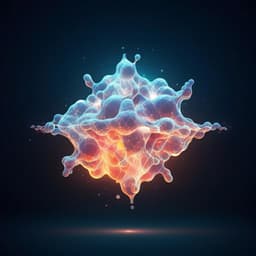
Chemistry
H₂-driven biocatalysis for flavin-dependent ene-reduction in a continuous closed-loop flow system utilizing H₂ from water electrolysis
G. Lim, D. Calabrese, et al.
Discover the groundbreaking research conducted by Guiyeoul Lim, Donato Calabrese, Allison Wolder, Paul R. F. Cordero, Dörte Rother, Florian F. Mulks, Caroline E. Paul, and Lars Lauterbach on a scalable electro-driven flow system, leveraging immobilized enzymes for superior flavin-dependent biocatalysis. This innovative approach showcases notable efficiency in converting ketoisophorone to levodione, promising a sustainable solution for fine chemical synthesis.
Related Publications
Explore these studies to deepen your understanding of the subject.







